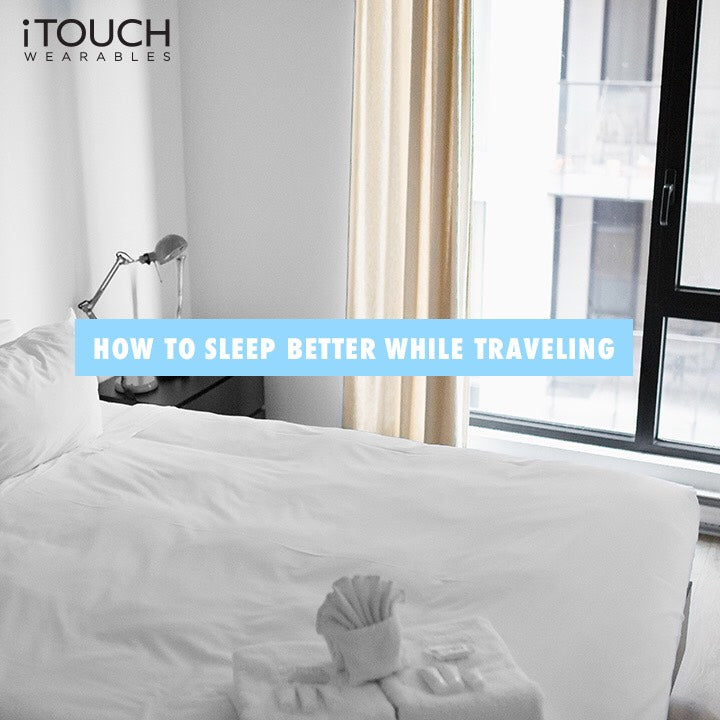
How To Sleep Better While Traveling
We're all aware that we need to get into a consistent sleep cycle and sleep routine in order to feel the most refreshed in the morning. Nonetheless, these both are forgotten as soon as you decide to travel. If you have difficulties sleeping on a trip, try these methods on how to sleep better while traveling and get enough hours in.
Pack Essentials

Sleep can be difficult while traveling because you'll be in places you're not used to that aren't always the most comfortable. That's why you should take your home with you - or at least some of the essentials. Bring things that help you sleep and provide comfort - your favorite pillow, blanket, book, essential oil diffuser, tea, noise machine, slippers, pajamas, etc. Whatever helps you wind down, pack it!
Control Stimuli

This brings us to our next point on how to sleep better while traveling. Two other essentials to pack are eye masks and ear plugs, which help control light and sound. This will let your brain know if it is day or night, while generating a soothing white noise. You may also want to bring a night light to help avoid turning on bright lights which will tell your brain to wake up. Essentially you want to be in tune with your surroundings and control what you can. For example, if you want to be able to sleep in, make sure the blinds are closed. If you want to be able to wake up in the morning, make sure the blinds are open so you can see the sun coming up and you wake up to natural light. Another important aspect of controlling stimuli is training your body the settings in which you do things. Like when you're in bed, you're asleep. When you're not, you're awake. You should be completing work or watch TV from a desk or chair, instead of a bed in order to sleep better at night.
Be Proactive
No matter what you bring or what you do, you need to be proactive before and during your trip. Basically, instead of trying to pretend that things aren't going to be different while traveling, you have to anticipate that they will be. Therefore, you need to be prepared and build safeguards for yourself. For example, if you know you're traveling to another time zone, get ahead of the jet lag by adjusting your sleep schedule beforehand. Wake up extra early the day of so you can go to bed early at night and you're still getting ample sleep even when the day seems shortened. Better yet, gradually shift your sleep schedule toward the new time zone days in advance. Exercising also is a great help with this. Getting some physical activity in early in the morning has been proven to help you adjust faster and better.
Use Assistance

If you still need some extra assistance to help you sleep, there are many supplements or medications out there. One of the best ones is melatonin, which can be effective in helping you reset your internal time-clock. This hormone tells your body when it is nighttime, so you can sleep better while traveling. A low dose right before you plan to go to bed will tell your body to go into night mode - as long as you still control the stimuli around you. Light actually suppresses melatonin, so taking it and then trying to sleep with a bright light won't give you a sleepy effect.
Don't Stress
One of the most crucial things you can do is not to stress over sleep. Regardless if you follow all of the above, it's inevitable that you will have more difficulties traveling than you do at home. Furthermore, stress will impact your sleep more than anything else. Try not to worry while you're traveling, and definitely don't add the extra stress over losing sleep. Simply do what you can, be smart, and trust that you will be okay even if you're tired one of the days you're away.
Share how you sleep better while traveling by tagging us on Instagram @itouchwearables and Facebook @itouchwearables. Also, be sure to check out our new articles published daily!
-Gina


